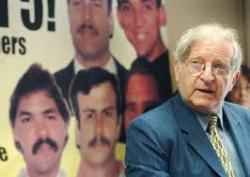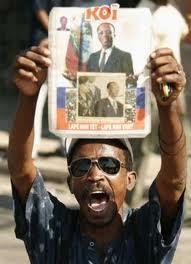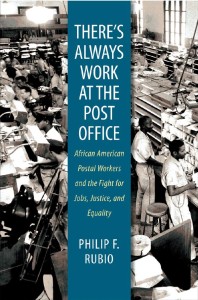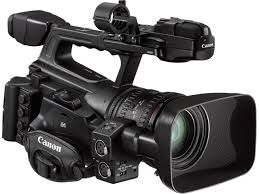by Horace Campbell
Reprinted from http://www.pambazuka.org/en/category/features/72174
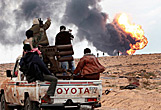 The Western bombardment of Gaddafi’s forces in Libya has become an opportunistic public relations ploy for the United States Africa Command (Africom) and a new inroad for US military stronghold on the continent. This involvement of Africom in the bombardment is now serving to expose the contradictions and deceit that have surrounded the formation of this combatant command, which is a front for military humanitarian assistance to Africa in coordination with the US Department of State and the US Agency for International Development (USAID). Attempts by the US to re-militarize its engagement with Africa is extremely dangerous, given the fact that the US does not have any positive or credible tradition of genuine assistance to freedom fighters and liberation movements in Africa.
The Western bombardment of Gaddafi’s forces in Libya has become an opportunistic public relations ploy for the United States Africa Command (Africom) and a new inroad for US military stronghold on the continent. This involvement of Africom in the bombardment is now serving to expose the contradictions and deceit that have surrounded the formation of this combatant command, which is a front for military humanitarian assistance to Africa in coordination with the US Department of State and the US Agency for International Development (USAID). Attempts by the US to re-militarize its engagement with Africa is extremely dangerous, given the fact that the US does not have any positive or credible tradition of genuine assistance to freedom fighters and liberation movements in Africa.
The US was complicit in the planning of the murder of Patrice Lumumba of the Congo, after which they propped up the monstrous dictator Mobutu Sese Seko who raped and pillaged the country and established a recursive process of war, rape, plunder, corruption, and brutality which the Congo still suffers from till today. Jonas Savimbi was sponsored by the US to cause destabilization and terror in Angola. The US gave military, material and moral support to the apartheid regime in South Africa while anti-apartheid freedom fighters, including Nelson Mandela, were designated as terrorists. It was only in 2008 that the US Congress passed a bill to remove Mandela’s name from the terrorist watch list). The US has yet to tell the truth about how Charles Taylor escaped from its prison custody in Massachusetts to go destabilize Liberia. Young people who are recruited for the US military and deployed to Africom may not know much about the notorious history of US military involvement in Africa. The military top brass take advantage of this ignorance among the young folks.
Just as the US military carried out psychological warfare against US senators, one of the tasks of Africom is to rain down psychological warfare on Africans. Built in this subtle psychological warfare is the concept of the hierarchy of human beings and the superiority of the capitalist mode of production and ideas of Christian fundamentalism. It is on this front that we find a section of the US military known as the “Crusaders.”
WHO ARE THE CRUSADERS?
In a recent article in Foreign Policy Magazine, Veteran US investigative journalist Seymour Hersh was reported to have revealed that there is a faction of the US military known as ‘Crusaders.’ Hersh asserted that these Crusaders are bent on intensifying a war against Islam, and see themselves as protectors of Christianity. According to the article, Hersh maintained that these neoconservative elements dominate the top echelons of the US military, including figures such as former commander of US forces in Afghanistan Gen. Stanley McChrystal and Vice Admiral William McRaven. These crusaders have held American foreign policy hostage. Hersh said, “What I’m really talking about is how eight or nine neoconservative, radicals if you will, overthrew the American government. Took it over.”
Back in May 2009, even before the appearance of the article by Seymour Hersh,Harpers magazine carried a lengthy report that placed General David Petraeus at the heart of the Crusaders. The magazine carried a very detailed article on the role of the Crusaders in the military, entitled, “Evangelical Proselytization Still Rampant in U.S. Military.” In this article we are alerted to the numerous fronts of the Crusaders. The information in the magazine article discussed a book published in 2005 by Lieutenant Colonel William McCoy, titled Under Orders: A Spiritual Handbook for Military Personnel. According to the article this book outlined an “anti-Christian bias” in the US, and sought to counter it by making the case for the “necessity of Christianity for a properly functioning military.” McCoy’s book was endorsed by General David Petraeus, who said: “Under Orders should be in every rucksack for those moments when soldiers need spiritual energy.”
Not only do these Crusaders have control over the US military, they are also linked with a faction of the Catholic Church called “Opus Dei,” an arch conservative order that has links with international banking, finance, militarism, and intelligence formations. Besides Opus Dei, one finds the fundamentalist evangelicals in the US, who are linked to the forces of Islamophobia and corporate elements. One crucial figure in this world of neoconservative militarist was Dick Cheney, former US vice president and chairperson of Halliburton. It is worth noting that it was from Dick Cheney and Donald Rumsfeld (former Secretary of Defense under George W. Bush) that the idea for United States Africa Command originated.
Dick Cheney and Donald Rumsfeld epitomize the crusaders. They interface with the world of militarist, corporate capital, private military contractors, and dictators. Many of these Crusaders are overt white supremacists.
The careers of Dick Cheney and Donald Rumsfeld and their corporate allies in the Carlyle Group, General Electric and Cerebrus spawn a world-wide web of conservative militarists, politicians, intellectuals and capitalists. These crusaders do not only disdain other cultures and religions, they have little or no regards for people of color. Rumsfeld and Cheney may have been unhappy to have read in Colin Powell’s book, that during a visit to Bunce Island in Sierra Leone he mentioned in a speech that: “As you know, I am an American, I am the son of Jamaicans who emigrated from the island to the United States. But today, I am something more. I am an African too. I feel my roots here in this continent” (Colin Powell, My American Journey, page 534). There are many from the rank and file of the crusaders who believe that President Barack Obama is not fit to be the leader of the United States, and their philosophy trickles down the hierarchy of the military, intensifying the divisions within the differing branches of US military. In 2010, one Lt. Col. Terry Lakin, a winner of medal of honor in the US military refused to take military command for deployment on grounds that he could not take orders from President Obama whom he considers unfit to be president and commander-in-chief. This belief is shared among many Republicans and conservative section of the US society, who are also present in the military and most epitomized by the crusaders. They claim that Obama was not born in the US, and thus was not supposed to be elected president.
Recent polls show that 51% of Republicans firmly believe Obama was not born in the US, and 21% say they are unsure if he was actually born here. Thus, over 70% of Republican constituency do not believe Obama is American and therefore don’t believe they should follow his orders.
The air force training academy in Colorado has received press reports about one faction of the neoconservatives in the air force who have manifested the most racist, sexist, and patriarchal attitude in the US armed forces (see“Christian Fundamentalist Bigotry Reigns at US Air Force Academy”). Those are the forces who have been most gung-ho about war because they simply drop bombs from the sky.
Information on the degree of conservatism at this Air force academy came to light when the Los Angeles Times reported that a Jewish father of two Air Force Academy cadets sued the Air Force, saying that senior officers and cadets illegally imposed Christianity on others at the school. The Air Force Academy is located in one of the most conservative areas of Colorado (Colorado Springs).Colorado Springs is the headquarters for dozens of conservative fundamentalist Christian groups, including Focus on the Family (the best-financed right-wing fundamentalist pressure group), as well as the International Bible Society and the New Life Church. These religious organizations provide the moral support for the racists and sexist ideas of the academy.
For some time, there have been open disagreements within the military between these Crusaders and another section of the military called the “Rocks.”
WHO ARE THE ROCKS?
Originally, the “Rocks” were formed by senior officers in the military who are non-whites. Colin Powell first wrote of the existence of the Rocks in the US military in his book, My American Journey. Although the narrative on equal opportunity in the US military has been part of the public discourse in the US, these officers faced discrimination and felt left out of the “white old boy networks” in the military. This reality is so blatant that even the army journal, Parameter, carried articles such as “Why Black Officers Still Fail”. This article, like some others, mention the “white old boy network” as one cause of the marginalization of black army officers. Once this stamp of failure was placed on these black army officers, they sought solidarity with each other; these black army officers chafed as they saw their counterparts rising to the highest ranks and going through the revolving door of the military industrial complex and private military contractors.
General Joe Ballard of the Army Corps of Engineers was one Rock of the US military who found out the real workings of the old boy networks of the crusaders. Joe Ballard had attempted to break up the stranglehold of the old boy network that privileged Halliburton, but found out that these conservative networks were very strong. Neither General Ballard nor Bunny Greenhouse understood the real powers of the Crusaders until Ms. Greenhouse attempted to expose the improper and blatant corruption in the no bid contracts for Halliburton. For this exposure she was humiliated and a signal was sent to Ballard and Greenhouse about the power of the Crusaders.
Although the Rocks started out among the ranks of officers of color, by the time Bush, Cheney, and Rumsfeld intensified the politicization of the military, decent officers who were not crusaders identified with one philosophy of the Rocks: that the military should not be used for the interest of private capital. Many of the rank and file who learnt of the treatment of former servicemen after their tour of duty became Rocks, so that today the Army at its core e is dominated by the Rocks.
During the war against the people of Iraq, the differences between the Rocks and the Crusaders came out clearly. There were press reports stating: “The Anger Of The Generals Unprecedented In Modern Times”. The New York Times liberally published the names of retired Generals such as Major General Paul D. Eaton, General Anthony C. Zinni, Lieutenant General Gregory Newbold, Major General John Batiste, Major General John Riggs and Major General Charles H. Swannack Jr. These generals were not afraid to have their names in print as being opposed to Donald Rumsfeld. Some of these generals such as General Newbold was opposed to Rumsfeld and the operations in Iraq. One press report from the New York Times noted that, “Lt. Gen. Gregory Newbold of the Marine Corps, who retired in late 2002, has said he regarded the American invasion of Iraq unnecessary. He issued his call for replacing Mr. Rumsfeld in an essay in the current edition of Time magazine. General Newbold said he regretted not opposing the invasion of Iraq more vigorously.” Colin Powell lost credibility when he fell prey to the make-believe intelligence cooked up by the Crusaders for the invasion of Iraq. But since realizing his blunder, Powell has become even more outspoken against the crusaders.
Many of the generals opposed to the crusader philosophy were forced into early retirement, and because of the difference in philosophy they were not able to join the gravy train of sitting on the boards of the top military suppliers or enter the revolving door between the private military contractors and the consulting firms in the military industrial complex. From y Bob Woodward’s books we have the profile of the more energetic sectors of the Crusaders such General Jack Keane, the present chairperson of the Board of the Institute for the Study of War. The Crusaders have the platforms of the Murdoch news outlets such as the Wall Street Journal and the Fox News. They seek respectability through think tanks such as the American Enterprise Institute and the Heritage Foundation. Behind these public policy institutes are the top conservative foundations such as the Lynde and Harry Bradley Foundation, the Carthage Foundation, the Earhart Foundation, the Charles G. Koch, David H. Koch and Claude R. Lambe charitable foundations, the Phillip M. McKenna Foundation, the JM Foundation, the John M. Olin Foundation, the Henry Salvatori Foundation, the Sarah Scaife Foundation, and the Smith Richardson Foundation. From among these sponsors and supporters, the billionaire Koch Brothers stand out as a formidable financial backbone of crusade activism.
THE CRUSADERS AND THE OBAMA ADMINISTRATION
The news on the Koch Brothers, suggests the use of militaristic language by the Crusaders inside and outside the military. In the New Yorker magazine we were treated to a very detailed analysis of the neoconservative war by Jane Mayer, “Covert Operations: The Billionaire Brothers Who Are At War with Obama”.
One other glimpse of the attitude of the Crusaders inside the military towards the Obama administration can be found in the discourse relating to Obama’s plan for Afghanistan. In the book, Obama’s Wars, Bob Woodward bares documented facts of the disrespect exhibited from a section of the military (crusaders) to Obama. What is most revealing is how the Secretary of Defense could not take a firm position against the disrespect. The other revelation was the alliance of Hillary Clinton, the Secretary of State, with a section of the military that refused to be serious about options for withdrawal from Afghanistan. Ultimately however, as President and Commander-in-Chief, Obama failed to provide the leadership necessary at a time when American citizens have said that they are tired of war. More than 70% of US population was opposed to further involvement in Afghanistan.
After Gates’failure to rein in the crusaders who were packed in the upper reaches of the military bureaucracy, Robert Gates belatedly placed some distance between himself and the crusaders. Initially, Gates opposed the idea of a no-fly zone over Libya. In a speech at West Point, he had said, “But in my opinion, any future defense secretary who advises the president to again send a big American land army into Asia or into the Middle East or Africa should ‘have his head examined,’ as General [Douglas] MacArthur so delicately put it.”
Here, Robert Gates was attempting to put some distance between himself and the crusaders by telling the West Point audience that the US should not lead “a big American land army” into Asia or into the Middle East or Africa. However, once the section of the National Security Council that advocated for war prevailed, Gates was silent. The Crusaders began to place General Carter Ham before the television cameras to claim that the Libyan operation was being carried forth by the United States Africa Command. These public relations spinners expected the world to believe that US Africom with 1,500 personnel stationed in Germany was leading the mission in Libya.
In the Bush years, the Crusaders conceptualized the US as being in a permanent global war, using the phrase, “global war on terror” (GWOT), to justify their link to particular factions of Wall Street and the manipulation of national security for political and capital ends. It is not clear to what extent the philosophy of the Rocks prevailed over that of the Crusaders to influence the Obama administration’s decision to retreat from using the term GWOT. The administration has settled for the term, “overseas contingency operation” (OCO). What is clear is that in the face of resistance from emerging powers, the Crusaders have regrouped to build up their assets in Africa. This regrouping includes a heightened propaganda war with CNN acting as an active accomplice when it reported that, “Al Qaeda in the Islamic Maghreb (AQIM) — has taken advantage of the unrest in Libya to seize SAMs from military stockpiles in rebel-held areas.” This news was supposed to bring back the images of armed terrorists with sophisticated weapons in North Africa.
For a short while when the book, Dark Sahara, by Jeremy Keenan exposed the fabrication of terrorism in North Africa, the Crusaders temporarily retreated. When the Free Officers Movement from Algeria (MAOL) corroborated some of the information that had been outlined in the book by Keenan, the Crusaders toned down the language on Al Qaeda in the Maghreb and instead focused on Al Qaeda in the Arabian Peninsula. However, with the sweep of revolution across Yemen and the downgrading of the importance of the bogy of terrorism in Yemen, the forward planners inside the Pentagon decided to go all out to rehabilitate Africom in the service of the Crusaders.
US AFRICOM AND THE CRUSADERS
The United States Africa Command (AFRICOM) was established by the U.S. Department of Defense in February 2007 as the United States fifth regional operations base, and as a separate command “to oversee military operations on the African continent.” Africom was a brainchild of Crusaders such as Rumsfeld, Bush, and Cheney. Rumsfeld pushed through the concept before he left the Bush administration in December 2006. Bush announced the formation of Africom in February 2007. And just before the election in 2008, this new command was inaugurated. This command is stationed in Stuttgart, Germany, because of the stiff opposition against it in Africa. Even the allies of the United States in Africa understand the strength of African public opinion against Africom. Thus, leaders such as Yoweri Museveni of Uganda in public, oppose the US Africa Command, but embark on joint military exercises with the US military under the banner of Africom. Museveni is a good example of an African politician who has been taken in by the rhetoric of the Crusaders. Sections of his family are in active relationships with the most conservative Christian fundamentalists in the USA.
In the face of the public opposition from African thinkers and opinion makers, the forward planners for the Crusaders moved to spend money among struggling academics to promote an ideological onslaught to legitimize the United States Africa Command. Beside this intense work among social scientists, the forward planners among the Crusaders decided to employ the services of propaganda firms to fan the flames of Islamophobia in Africa. Africom has embarked on a massive public relations campaign to sell itself as a force for humanitarianism and development in Africa. Hence, for the past two years, almost all aspects of the United States foreign policy in Africa have been subordinated to the Pentagon. Essentially, with the force of only 1,500, Africom serves to hand out contract to private military contractors. Space will not allow to give details of this business of mercenary forces vis-à-vis US military. But the activities of Blackwater – now called Xe – are well known and extensively documented in the book by Jeremy Scahill, Blackwater: The Rise of the World’s Most Powerful Mercenary Army. From this book and others we have learned of the mindset behind the top brass of Blackwater (Xe). What is unclear is why the leaders of the Emirates would provide a home for the top honcho of Blackwater after there were calls for legal action against the company, following the shootings of 17 Iraqi civilians in Nisour Square, Baghdad. Hundreds of private military contractors with reputation similar to that of Xe are now licensed to train African armies under the rubrics of Africom. These licenses are granted through the State Department so that the US Africa Command gets the contract for training African armies and then there is subcontracting to firms such as Dyncorp, one of the most energetic of the military contractors in Africa. DynCorp, essentially private army is now owned by Cerberus, one of the largest private equity investment firms in the United States. It is Dyncorp that is training the new Liberian army, and Liberia is the only African country whose president has said that Africom could locate its military base in that territory.
The other top military contracting firms are Kellogg Brown Root (KBR) Inc. (subsidiary of Halliburton), operating in Kenya, Djibouti, Ethiopia; Pacific Architects and Engineers Government Services (until recently a subsidiary of Lockheed Martin), operating in Liberia; Protection Strategies Inc., also involved in Liberia; and Military Professional Resources Inc, MPRI which has contracts in Benin Republic, Ethiopia, Ghana,, Kenya, Mali, Malawi, Nigeria, Rwanda and Senegal. Others are CSC (Computer Scientists Corporation) and Science Applications International Corporation (SAIC). There are also British private military contractors such as Aegis, but the British could not be relied upon to carry forward the ideology of the Crusaders. From time to time there is cooperation and competition between the British and US Crusaders in their efforts to control oil resources in societies such as Equatorial Guinea.
Equatorial Guinea is reputed to be one of the worst dictatorships in the world and MPRI was able to secure the Maritime Security Enhancement Program that provides nationwide coastal surveillance across Equatorial Guinea. On January 25, 2007, senior members of MPRI, met President Obiang of Equatorial Guinea and briefed him on the first three months of a five-year program for training of military and presidential security units (see the report, “Private US Firm Trains Equatorial Guinea Army Units,” Agence France-Presse, January 30, 2007. Read more:http://www.upi.com/Business_News/Security-Industry/2010/02/25/Equatorial-Guinea-contracts-for-security/UPI-81031267127729/#ixzz1I8t6BdJW The posture statement of the United States Africa Command declares that, Africom “contributes to increasing security and stability in Africa—allowing African states and regional organizations to promote democracy, to expand development, to provide for their common defense, and to better serve their people. “ However, as the relationship with the dictator Obiang exposes, Africom is more concerned with the stability and security of US petroleum interests in Equatorial Guinea than with the democratic rights of the people.
The use of private capitalist armies by the US military crusaders in the Middle East has peaked in Iraq and Afghanistan, hence the consolidation of their market frontier in Africa. The article “Why Contractor Fatalities Matter,” (Parameters, Autumn 2008) states that there were more contractor personnel employed by the US military than there were military personnel on the ground in Iraq as of 2008. According to the article,
Today, the heavily outsourced US military cannot effectively function or sustain itself without an enormous contractor presence. Particularly in Iraq, the US government employs—directly and through subcontracts—more contractors than military. Most experts agree that there are at least 190,000, and as many as 196,000, contractor personnel in Iraq, compared to fewer than 170,000 military personnel (79).
The replication of this neoliberal militarism by using Africom as a front for private armies comes with the fabrication of terrorism and all forms of destabilizing machinations that would increase the market demand for private armies in Africa in order to satisfy the profit motives of the supplies of private military contracts from the West. This is a threat to the transformation of the continent.
The revolutions in Tunisia and Egypt shocked the Crusaders and they calculated on how to make a move to gain the support from the US society and consolidate Africom. The debate over saving civilians in Libya provided the best opportunity, and Barack Obama opened the door to strengthening the crusaders – the very forces who do not believe that Obama was born in the USA.
DISBANDING AFRICOM
When Barack Obama appointed General Eric Ken Shinseki as Secretary of Veteran Affairs, some sections of the Rocks had anticipated that Obama would do some house cleaning in the Pentagon to weed out the Crusaders and to remove their licenses for their contractors through the State Department. The Crusaders went on the offensive over the plans for expanding US forces in Afghanistan and Dick Cheney became the public spokesperson for them outside the official military and those among the private military contractors. Some observers have claimed that, from time to time Obama called on Colin Powell to rally the Rocks to counter the claims of Dick Cheney but Obama recoiled from a frontal assault on the Crusaders. The Crusader understood that Colin Powell had only little credibility after they manipulated him before the court of world opinion to give false witness before the United Nations harnessed all of their resources against Barack Obama. In the midst of the depression when the workers of Wisconsin demonstrated that the organized workers could isolate the Tea Party, the ideas of white supremacy were needed anew. This is where one must understand the present foray of the United Sates in Libya.
Dictators throughout Africa and the Middle East were shaken by the Tunisian and Egyptian revolutions. Barack Obama dithered on the question of the future relationship with the Crusaders when he should have taken a clear position on the question of a US military intervention in Libya. As the debate raged between the Rocks and the Crusaders inside the military bureaucracy, Robert Gates decided to abandon the Crusaders and gave Obama an opening by saying that any President who placed troops in Africa needed to have his head examined. While Obama dithered, France and Britain energetically pushed so that British Petroleum and ELF could be in the driver’s seat in North Africa in order to play the counter-revolutionary role against the rising tide of revolution. The Crusaders did not want to be left out and were temporarily sidelined until Susan Rice, (Permanent Representative of the United States to the United Nations), Samantha Power (Special Assistant to President and member of the National Security Council) and Hilary Clinton began to make the vigorous claim for US military intervention. These advisors of Barack Obama presented strong militaristic arguments and never considered serious alternatives to the military intervention. The Crusaders waited for the moment to bring back their public push for Africom. And they seized it.
We are now informed by the United States media that while the decision to support United Nations Security Council resolution 1973 was being debated, Barack Obama signed an executive order to place covert operatives in Libya, returning to the strategy of creeping war that precipitated the Iraq fiasco. The press organization, Reuters, reported that President Barack Obama has signed a secret order authorizing covert US government support for rebel forces seeking to oust Libyan leader Muammar Gaddafi. Obama signed the order, known as a presidential “finding,” within the last two or three weeks, according to four US government sources familiar with the matter. Such findings are a principal form of presidential directive used to authorize secret operations by the Central Intelligence Agency.
One piece of evidence of the struggle between the Crusaders and the Rocks came from the Al Jazeera report that the information on the executive order was leaked from inside the Pentagon. Those inside the Pentagon with the memory of the history of the no fly zone over Iraq understand the implications of regime change and creeping war.
Barack Obama was elected President of the United States and Commander-in-Chief of the armed forces. It is within his power to disband the US Africa command because this command was created by presidential decree. It can be disbanded by a presidential decree. It does not make sense that trained military personnel are deployed to dig water wells in Lamu, Kenya or that Combined Joint task force teams were repairing wells in Tanga, Tanzania. For long term peace and transformation the United States must work with the democratic forces in Africa and the African Union.
Obama has the choice to either withdraw from the militarization of Africa or be torn apart by the US military relations with Africa. Obama will either lead or be swept aside in this era of depression, war and revolution. Obama must prove to the citizens that Seymour Hersh was wrong when he asserted that the Crusaders took over the US government.
BROUGHT TO YOU BY PAMBAZUKA NEWS
* Horace Campbell is professor of African American studies and political science at Syracuse University. He is the author of ‘Barack Obama and 21st Century Politics: A Revolutionary Moment in the USA’. Seewww.horacecampbell.net.
* Please send comments to editor@pambazuka.org or comment online atPambazuka News.

